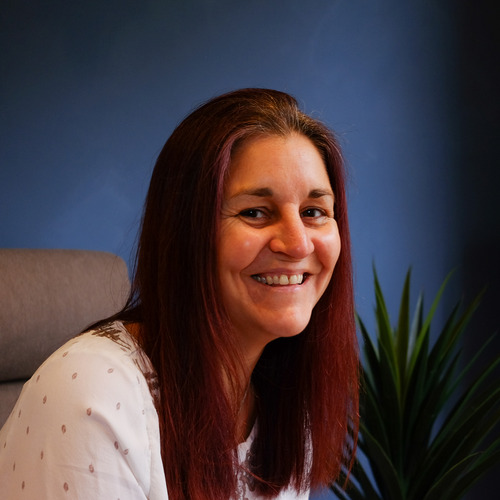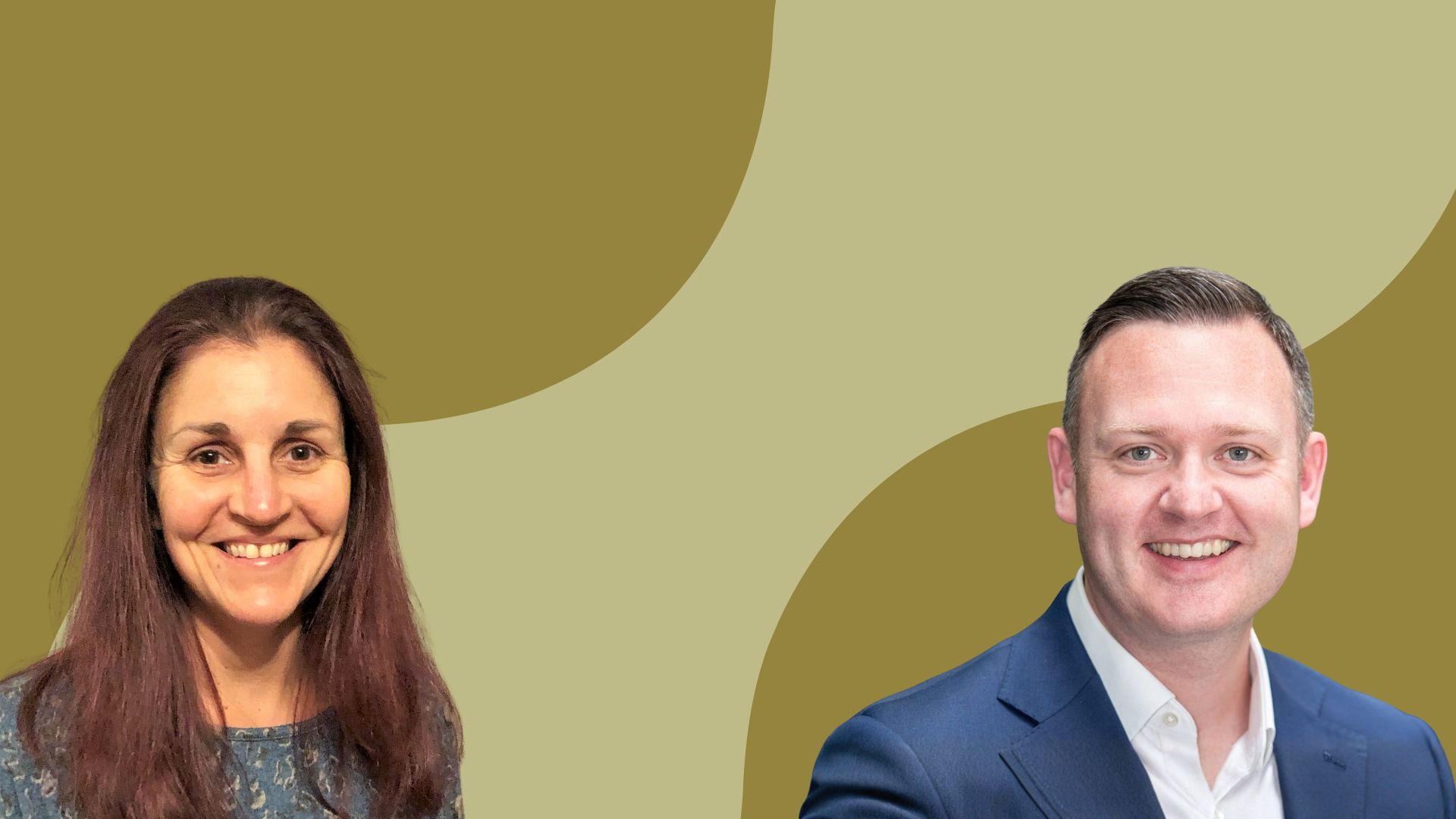I recently sat down to chat with Guy Skinner, Owner and Founder of Citygate Financial Planning. The conversation was rich, wide ranging and for me, inspiring. If you fancy grabbing a cuppa and watching our conversation, the link is at the end, otherwise read on…
Guy Skinner’s team recently overruled him on a business decision.
As a founder with crystal-clear conviction about how financial planning should work – conviction forged when his father’s death at 44 could have destroyed his family but didn’t, thanks to proper financial planning – you might expect this to sting.
Instead, Guy was remarkably okay with it.
Here’s why that matters.
The tension at the heart of leadership
Most leadership advice asks you to pick a side: be visionary and driven, or be collaborative and open. Have strong opinions, or create space for others’ thinking.
Guy’s work suggests this is a false choice. The leaders who create the most impact hold both truths simultaneously.
Strong conviction about what matters. Genuine openness to being wrong about how to get there.
What strong conviction looks like
When Guy was 10 years old, his father died of cancer. Two years earlier, his dad had worked with a financial planner who asked a difficult question: “What happens if you die?”
The advice his father received meant Guy’s family didn’t have to move house. His mum didn’t have to work double shifts. They had stability during the most difficult time imaginable.
It took Guy a week of cold calling in his first financial advice role to connect the dots: “I realised, hang on a second, I could have a positive impact on their life. That became my superpower.”
That’s conviction. The kind that comes from lived experience, not business school theory.
Guy knows financial planning changes lives. He knows the profession needs to evolve beyond serving just 8-9% of the population (the traditional client with a million pounds approaching retirement).
Guy often meets with business owners in their late 30s and instead of just discussing pensions, they explored taking summers off to travel Europe with their children, working half a day less per week to volunteer, restructuring their work to maintain energy and passion.
That’s Guy’s conviction in action: financial planning should open up possibilities, not just tick compliance boxes.
So when his team disagreed with him about a client communication, why didn’t he pull rank?
What genuine openness looks like
“If there’s 10 people that all disagree with something that you think, then probability would suggest that they’re right and I’m not.”
His team is more representative of their client base than he is alone. They’re the ones who have to deliver the work and deal with consequences.
I have to be respectful of what they think is a good thing to do. I wouldn’t be very happy in their position if I started getting lots of complaints.
This isn’t weakness. Guy maintains that if he has “real firm conviction” about something, they’ll do it. But he recognises the difference between conviction about the destination and assumptions about the route.
The conviction: financial planning should change lives, not just manage money.
The openness: how we communicate, what we include in our service, the specific ways we deliver value – these are all open to challenge.
The belief that makes both possible
I honestly believe I can learn something from everyone.
Guy doesn’t remember where this came from, but it underpins everything—how he leads his team, how he makes decisions, how he shows up in client meetings.
His reasoning? “The lived experience that you and I have probably represents something like 0.01% of all the experiences that have ever existed.”
This isn’t false humility. It’s a mathematical reality he takes seriously.
Guy’s wife worked as a GP in India for 10 weeks. She came back wishing everyone in the UK could have that experience – to see how good we have it here. Guy didn’t need to work in India himself to benefit from that perspective shift. He just needed to listen to it properly.
Where most of us go wrong
After training in the Thinking Environment, Guy had an uncomfortable realisation: “I thought I was somebody that was good at listening. And then I kind of realised I’m nowhere near as good as I thought I was.”
Like most of us, he interrupted. He started formulating responses while people were still speaking. He inadvertently brought them back to surface-level thinking before they’d had a chance to go deeper.
The shift came when he accepted something: conviction about your purpose doesn’t require you to control every conversation about how to achieve it.
When you create the right environment – removing distractions, giving full attention, not interrupting – people’s thinking evolves.
“It’s down there that the really great stuff happens, where it’s probably going to have the most impact.”
When couples are in client meetings, they often hear thoughts their partner has never shared before. Not because Guy asked brilliant questions (although he is naturally deeply interested in people and so does that too!) but because he created space for thinking beyond default responses.
The practical infrastructure
Holding conviction and openness simultaneously isn’t just a mindset. It requires supporting practices:
He protects thinking time. For himself and his team. He recognises that in busy firefighting mode, he reverts to assumptions and control.
He maintains capacity. “I know if I’ve not been to the gym for 3 or 4 days in a row, my thinking becomes a lot more cloudy and fuzzy.” Openness requires energy. When you’re depleted, everything feels like a threat to your vision.
He actively seeks different perspectives. For younger planners without decades of life experience, Guy’s advice is concrete: volunteer at organisations like Samaritans or bereavement charities. Have deeper conversations with your parents about their financial concerns.
These people don’t want to be told what to do, they just need somebody to listen to them. And it’s the same with financial planning.
Why this matters
What if strong conviction makes genuine openness possible – because when you’re clear about what you’re trying to achieve, you can be flexible about how to get there?
What if genuine openness makes conviction more powerful – because it’s been tested, challenged, refined by people who see things you don’t?
Guy didn’t set out to solve a leadership paradox. He just knew that financial planning should change lives (conviction from experience), he doesn’t have access to 99.99% of human experience (reality check on his perspective), and other people’s thinking generates better outcomes than his assumptions (practical application).
The result? A business where the team challenges the founder’s decisions, and the founder thanks them for it.
“I’m not a dictator. Never have been, never will be.”
The question worth asking
In your business, where are you confusing conviction about your purpose with certainty about your methods?
Where might your team – or your clients – be holding back their best thinking because they assume your strong vision means there’s no room for their perspective?
Because here’s what Guy’s work suggests: the stronger your conviction about what matters, the more important it becomes to create space for others’ thinking about how to achieve it.
The alternative isn’t collaboration. It’s just you, your 0.01% of experience, and a team who’ve learned to keep their best ideas to themselves.
Watch my full conversation with Guy Skinner below, to hear more about how he maintains conviction while creating space for challenge.#
If you would like to hear more about how we help Financial Planners, business leaders and teams to develop their listening skills, collaborate, innovate and hold more effective meetings, we would love to hear from you. Contact Becca or book in for a coffee and a chat here.






0 Comments